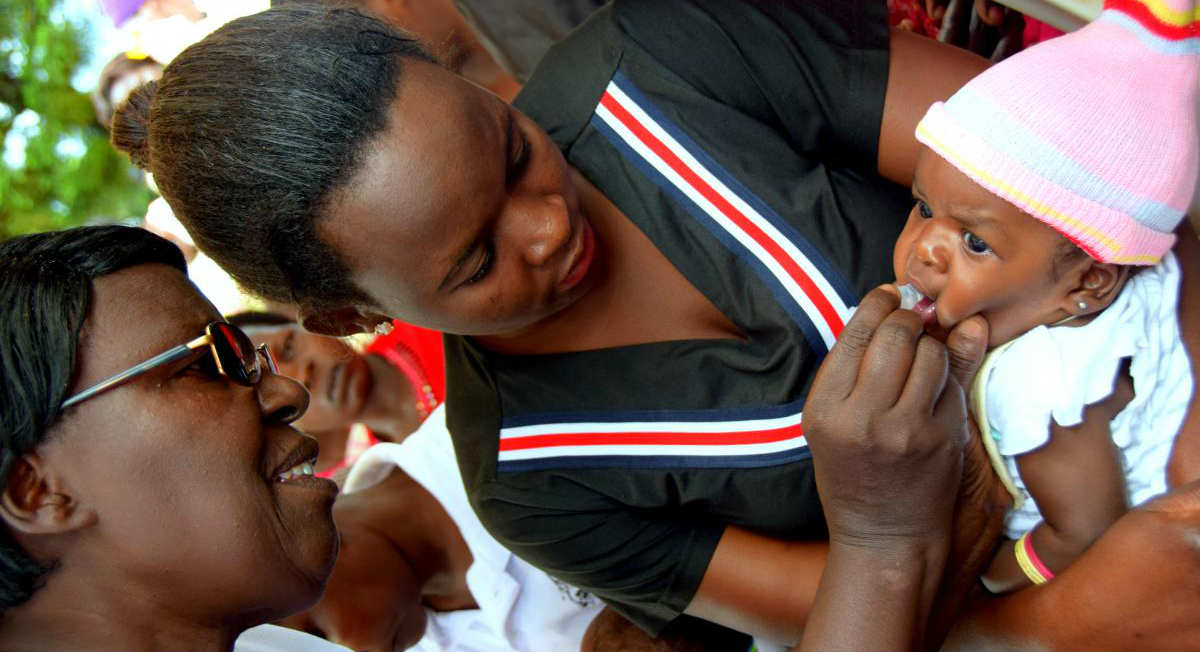
Merck & Co attacked after it pulls out of West African deal to supply rotavirus vaccine
Conflicting views on why Merck is selling to China but not to Africa
Pharmaceutical giant Merck & Co is under fire for ending a six-year agreement to supply a life-saving vaccine for children in four countries in West Africa at a heavily discounted price. At the same time, Merck has ramped up its supply to China at a much higher price.
As an example of the outrage at the news, here’s a tweet from Chelsea Clinton: “As a result of Merck's decision, more than a half-million children in West Africa may not receive the vaccine in 2018 and 2019 … And more than 2 million may go without the vaccination in 2020. Shameful.”
Merck tells a different story.
It produces RotaTeq vaccine, a vaccine against rotavirus, a disease which killed 213,000 children worldwide in 2013. It has been supplying RotaTeq through an arrangement with GAVI, the Vaccine Alliance, a public-private partnership for supplying medicines and vaccines to low-income countries, for about US$3.50 a dose. However, it is reducing its shipment by one-third in 2018 and one-third in 2019 and thereafter will not supply any doses. Another company, GlaxoSmithKline, almost manufactures a vaccine, but it cannot make up the shortfall for West Africa.
According to a report on NPR, which broke the story, the price paid by the Chinese is about $40 a dose.
Merck’s CEO, Ken Frazier, insists that Merck is not being “hard-hearted”. He explained at a press conference that the issue was caused by supply constraints.
“What happened, with respect to rotavirus vaccine and our HPV vaccine, over the last few years, there has been an unprecedented rise in the demand for those vaccines. And vaccines are not like small chemicals where you can press a lot of pills. There is a long lead time associated with vaccines. And so, we have a temporary problem right now, where the demand outstrips the supply.
“We did suffer some manufacturing challenges that actually contributed to this. But we are still selling vaccines to those countries. The challenge that we have is we have to now build new manufacturing facilities in order to do the rotavirus and the HPV vaccine.”
This is an example of the collision of philanthropy and business.
“Being a for-profit business, they don’t have a legally enforceable obligation to be philanthropic. We can expect people to be good corporate citizen, but the exact parameters of what that means can be unclear,” Holly Fernandez Lynch, a bioethicist at the University of Pennsylvania, told STAT.
“We can only expect from these companies what they’re willing to do from the goodness of their hearts and that might not always be what we want them to do, but from an ethical perspective, you shouldn’t make two promises you can’t keep. Their statements about allocations just aren’t clear. But if a company makes a promise they’re backing out on, that’s a concern.”
Creative commons
https://www.bioedge.org/images/2008images/FB_rotavirus_vaccine_1.jpg
big pharma
pharmaceutical industry
- How long can you put off seeing the doctor because of lockdowns? - December 3, 2021
- House of Lords debates assisted suicide—again - October 28, 2021
- Spanish government tries to restrict conscientious objection - October 28, 2021
